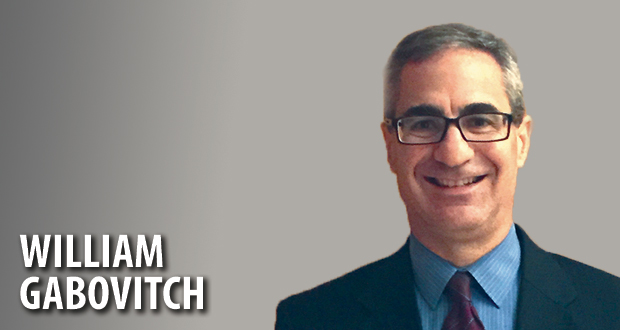 William N. Gabovitch, General Counsel for Primark U.S. Corp, is the subject of this Q&A, conducted by Ellen M. Keiley with members of the Massachusetts legal profession.
William N. Gabovitch, General Counsel for Primark U.S. Corp, is the subject of this Q&A, conducted by Ellen M. Keiley with members of the Massachusetts legal profession.
EK: Tell me about your background and why you came to Primark.
GABOVITCH: I’ve been an in-house counsel for 20 years and practicing law for a total of 30 years. Primark was a very enticing opportunity for me, as it’s well known and very successful in Europe with over 315 stores in 10 countries, but new and largely unknown in the U.S. It was a way to move up in my career and work in a general counsel role.
It’s a nice fit for me given my retail background and an opportunity to create a new legal function. I also get to help introduce Primark to the U.S. audience while playing a role in the growth of the company, advising on risk, and providing leadership with compliance.
EK: What does it take to be an effective in-house lawyer?
GABOVITCH: In addition to basic but important legal knowledge and ability and knowing the company well, relationships are at the core of an effective in-house lawyer’s role. You need to be able to cultivate and nurture relationships.
You want business people to trust and use you. They need to know you understand their business and respect them for the role they play at the company. You want good relationships with law firms, which help you address issues facing your company at affordable and predictable costs. Having strong, trusting relationships built on mutual respect make people with good legal skills into great in-house lawyers.
Another important focus for a good in-house lawyer is to do your best to look ahead and try to “predict the future” as to potential issues and challenges ahead for your company. It’s the hardest part to do but something that is important to include in your schedule.
EK: How do you go about “predicting the future”?
GABOVITCH: Look at what is happening in the business world, including what your competitors are doing, what is getting companies in trouble, and what is in the headlines. Read as much as you can. Read law firm and industry newsletters, government agency announcements and mainstream news sources. And stay on top of new initiatives at the company. Where do they want to go?
EK: What was it like to go from private practice to in-house?
GABOVITCH: For my personality and awareness of my own skill set, in-house has been a great match for me. I can focus and be deeply involved with the client — the company I work for — and work side by side with clients on business solutions. When you are in-house, someone can stop you in the hall, bring up a potential issue, and get their legal questions answered. For them, there is no bill! We also both have the same goal: company success. Private law firms utilize lawyers for great legal skill and practice development. For me, the use of legal skills is where I wanted to focus.
EK: What advice do you have for private practice lawyers?
GABOVITCH: Learn the client’s entire business, no matter what specific function you are advising on. It will always make you more valuable to the lawyers there and the company.
Understand how in-house counsel wants to work. They want solutions to problems at the lowest cost. Find out how involved they want you to be. You need to make the in-house attorney with whom you are working a success. Each will have different modes of operating, different needs for information, and different thresholds for risk.
Doing things such as not giving them all necessary information, not meeting deadlines, doing more work than asked, or spending too much money is not going to help you, even if you solve the problem. In the end, that’s how you will be evaluated — helping the in-house attorney bring the company to a solution.
Know what you are good at, perform that function, and don’t try to sell yourself or your firm far outside your areas of expertise. Most in-house counsel hire good lawyers, not law firms. If it’s not your area, recommend a colleague or just say your firm is not an expert in that area. It creates a more honest relationship.
EK: What advice do you have for other in-house counsel?
GABOVITCH: In-house lawyers are always brand ambassadors of the company. Everything you do makes an impression. This is particularly important to be aware of when dealing with customers, suppliers, government officials, activists and during negotiations. You are public facing so what you and your company does is visible to everyone. As my former boss, Michael Williams, general counsel of Staples taught me, one of your prime objectives is to protect the brand.
EK: What’s exciting about Primark?
GABOVITCH: As we say, amazing fashion, amazing value and it’s made in an ethical way. Right now after just over a year in the U.S., we have five stores in four states and will have 10 stores by 2018. It’s very exciting and satisfying to see and be a part of the growth.
EK: Tell me something about you that might surprise others.
GABOVITCH: While at Staples, I worked four hours per month in the stores in different roles, from the register, to unpacking a truck, to stocking shelves. And I will be doing that at Primark as well. It really gives you a thorough understanding of the company. And I have a great time doing it.
Ellen M. Keiley is president of EMK Consulting Group, which offers business development coaching and consulting, public relations, and training for law firms. She can be contacted at [email protected].
 New England Biz Law Update
New England Biz Law Update
